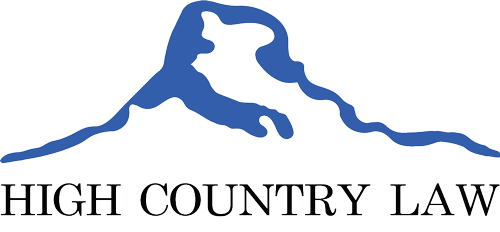Given the date of this post, the Dad in me really wanted to call it, “Cinco Things You Mayo Want to Avoid After an Accident.” Despite my fatherly attempt at a humorous title, getting into an accident or being injured is no joking matter.
Accident / Injury Statistics
Car Accidents
The average driver will be in a car accident every 17.9 years, according to an insurance company estimate. According to the Arizona Department of Transportation, in 2020 there were a total of 98,778 reported accidents in Arizona. Of those, approximately 28,610 people reported injuries.
Slip and Fall Incidents
According to the National Floor Safety Institute, falls account for over 8 million hospital emergency room visits and is the leading cause for visits. Slip and fall injuries are the leading cause of workers’ compensation claims and occupational injury for people age 55 and older. In 2020, injuries attributed to a fall accounted for 33% of all non-fatal injuries (National Safety Council, Top 10 Preventable Injuries).
Dog Bites
The American Veterinary Medical Association states that more than 4.5 million people are bit by dogs each year in the United States. Of those, more than 800,000 people receive medical attention for dog bites, half of which are children.
Five (5) Post-Accident / Injury Tips
1. Do Not Admit Fault. It doesn’t make you a dishonest or bad person to be cautious with what you say after an accident/injury. I have seen many instances where facts come to light days, weeks, or even months after an accident/incident that better tell the story than even your own perception of what happened, especially right after the accident/incident while your adrenaline is high. The first thing you need to do after an accident is make sure everyone is safe. Fault is a question of fact that sometimes is not as clearcut as you initially think, especially in states like Arizona where the law allows negligence to be apportioned to each involved party.
2. Do Not Provide a Recorded Statement. Besides talking with medical professionals, first responders, and reporting the incident to your insurance company, do not speak with anyone about the details of the accident/incident. I have seen instances where an injury victim innocently attempts to assist the insurance company (even their own) with the investigation by providing a recorded statement only to have a poor word choice used or ineloquent description used against the person trying to make a claim, thus delaying or outright hindering their recovery.
3. Do Not Agree to Settle at the Scene. It is difficult to fully appreciate and/or understand the true extent of damages and/or injuries immediately. In fact, even if the damage to your person/property appears minor, depending upon the type of accident/injury, the true severity and/or costs associated with the damage/injury may not be apparent for days or longer. Damage to your vehicle, for example, typically requires evaluation by a professional, including disassembling your vehicle in some cases, to accurately evaluate the damage and ensure your vehicle is safe to operate. Injuries are similar in the sense that they can often start out seemingly insignificant (e.g., a little headache) and get worse as time goes on (e.g., concussion).
4. Do Not Assume You are Not Injured. Many of my clients over the years have told me that they “felt fine” right after the accident. However, over the next few hours/days, their injuries manifested and turned out to be much more serious than they initially thought. It is important to get examined by a qualified medical professional just to be sure. This also provides helpful documentation of your accident/incident such as the date/time, how the event occurred, and your vital signs/initial symptoms for use by subsequent medical providers; insurance adjusters; and in litigation/trial, if necessary.
5. Do Not Assume Someone Else Will Gather Evidence. Even though it’s probably not your first (or even second) thought after an accident/injury, gathering evidence is vital to your ability to receive the compensation you deserve. Insurance companies are in the business of evaluating claims and paying out the least amount possible. If you are making a claim (or filing a lawsuit), it is your responsibility to prove your case. After a motor vehicle accident, for example, it is imperative that you take photographs of all the vehicles involved. In addition, it could be vital to your claim to: (a) take pictures of any skid marks on the road or injuries sustained (e.g., cuts, bruises); (b) identify any witnesses to the accident/incident; and (c) identify any possible video sources that may have captured the incident (e.g., store surveillance cameras, cell phone/dash cam video). The same is true for a slip and fall or dog bite incident as well. Photographs of the area you fell/were bit could make all the difference in your claim/case.
If you or someone you know has been injured in a car accident, a slip and fall, or bit by a dog caused by someone else’s negligence, call High Country Law today at 928-985-9800 or send an email to info@highcountrylaw.com for a free consultation.

